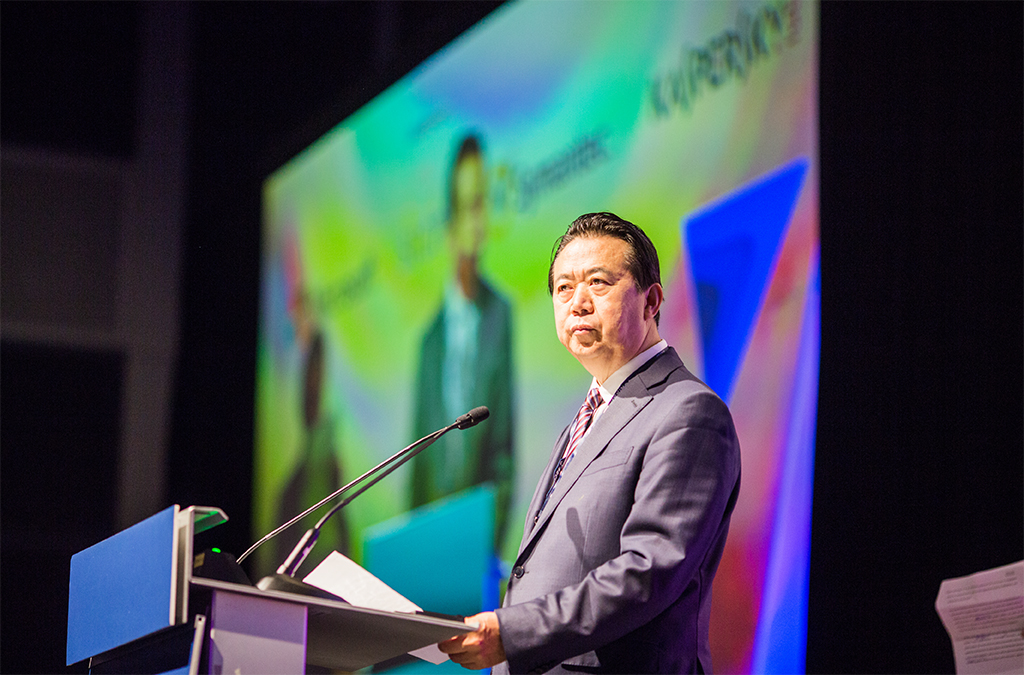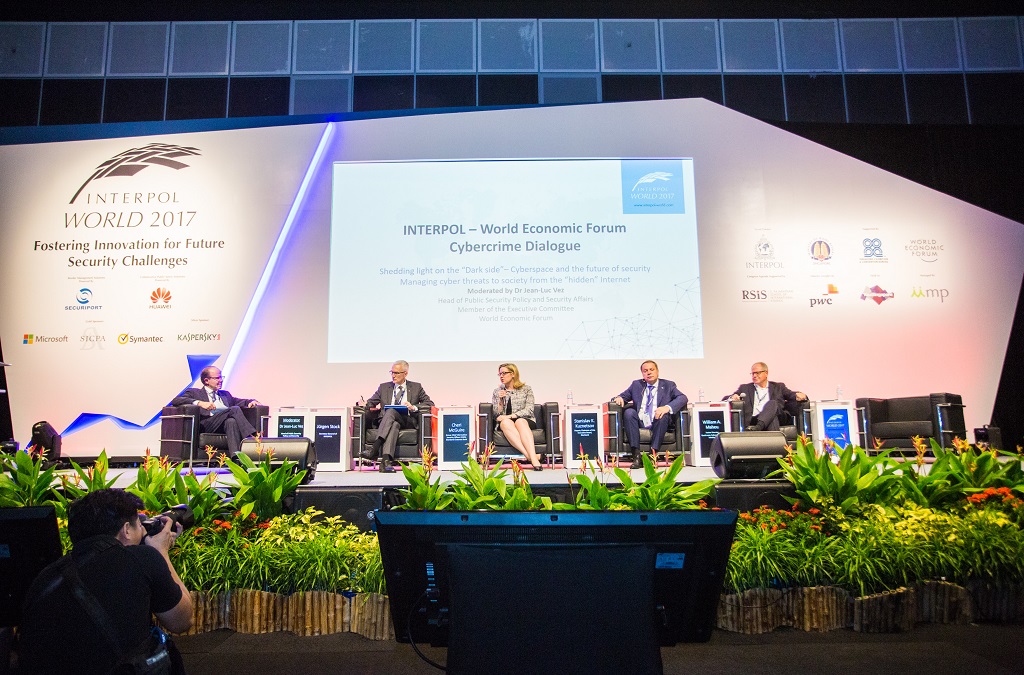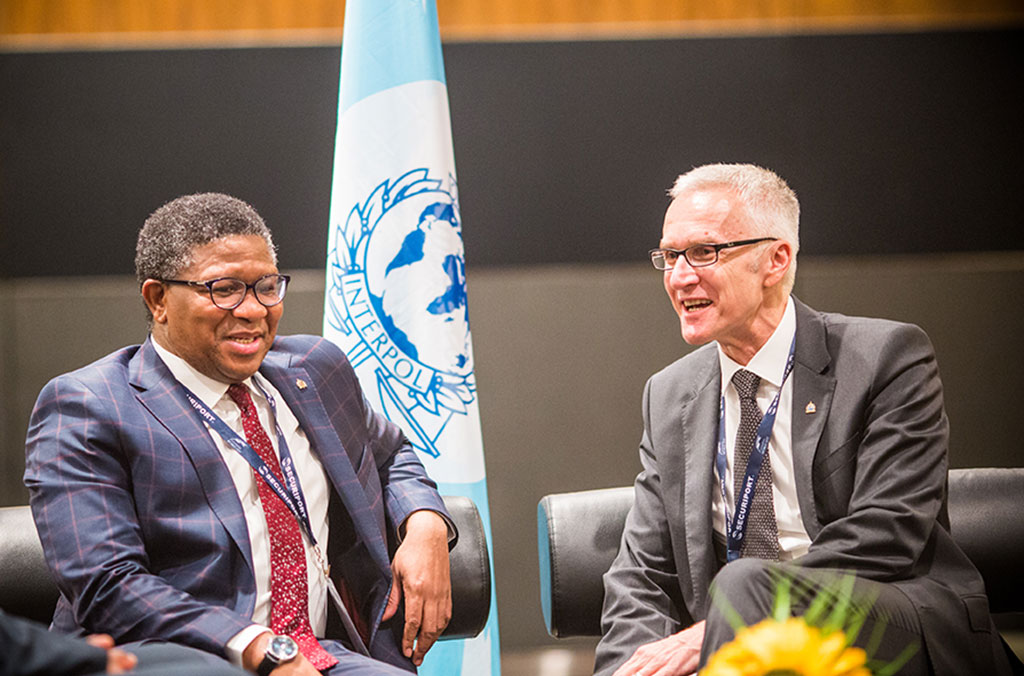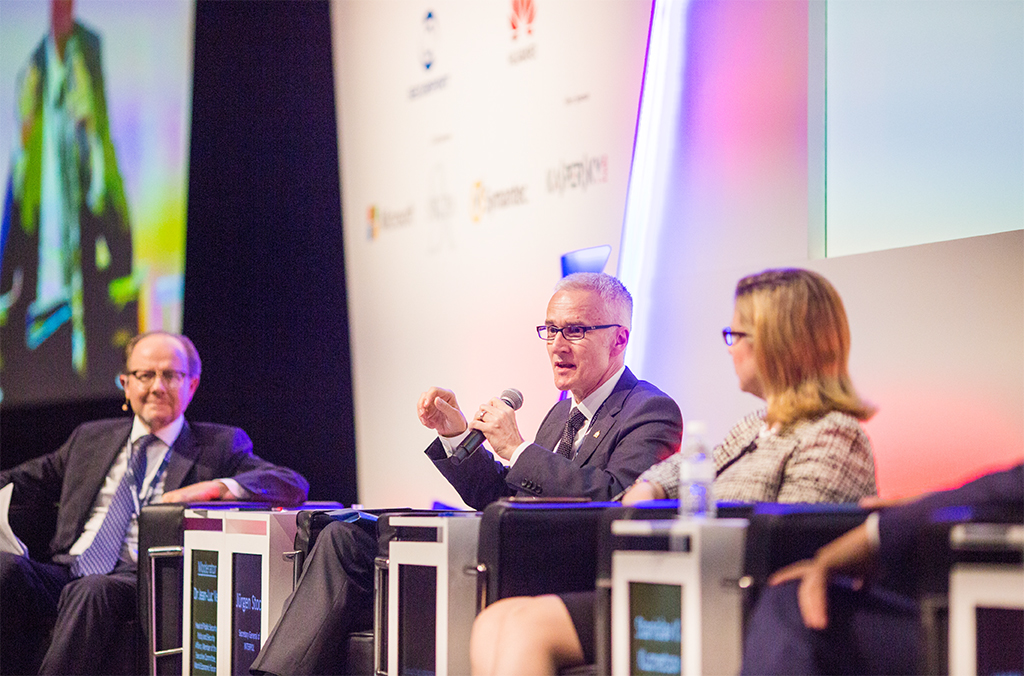SINGAPORE – Tomorrow’s security challenges can only be tackled through a coordinated public and private sector response focusing on innovation – this is the key message of the INTERPOL World congress which opened today in Singapore.
With threats from cybercriminals and the exploitation of new technologies continuing to grow, the four-day (4 ‒7 July) INTERPOL World 2017 offers a forum for law enforcement and the public and private sectors to exchange ideas and develop innovative concepts for future security initiatives.
As the private sector typically holds more detailed data on cyberthreats, attacks and victims than traditional law enforcement agencies, particularly in the immediate aftermath of an attack, information exchange between police and private industry is key to developing a comprehensive global response.
To this end, INTERPOL continues to develop its proactive collaboration with the private sector in the fight against cybercrime, with industry partners already working alongside INTERPOL cyber experts at the INTERPOL Global Complex for Innovation (IGCI) in Singapore. Additional information sharing agreements are being developed to ensure INTERPOL has access to the broadest range of data in order to provide member countries with accurate, critical analysis of current and evolving threats.
Building upon the success of the inaugural INTERPOL World in 2015, the event comprises a global exhibition and congress and focuses on three emerging security challenges: cybercrime, the future of policing in global cities, and identity management. It brings together participants from 220 companies from 34 countries and law enforcement from across the globe.
Underscoring the value of public and private sector collaboration, in April INTERPOL led an operation targeting cybercrime in Southeast Asia where information provided by both police and private industry partners led to the identification of nearly 9,000 malicious entities and hundreds of compromised websites, including government portals.
A second operation in the Americas region is currently under way, with INTERPOL combining data from the nearly 40 participating countries and private sector partners to develop timely threat reports and assisting countries to develop proactive law enforcement responses.
INTERPOL President Meng Hongwei highlighted the importance of international collaboration between all sectors in several key areas in order to develop a global response to technology-assisted crime: information sharing, intelligence analysis, training and public awareness.
“In the future, the threats from the illicit use of technology and cyberspace will continue to grow. We will face new challenges beyond our imagination in terms of scale, speed and influence.
“We must combine our global efforts to stay one step ahead of ever-evolving criminals by enhancing the capabilities of all stakeholders to confront these increasingly ingenious and sophisticated challenges,” concluded President Meng.
Following the two major ransomware attacks in May and June which caused extensive damage and disruption to governments, businesses and individuals globally, INTERPOL coordinately the global response through the sharing of technical expertise and victim information to help member countries reduce the negative effects and prevent further damage.
INTERPOL Secretary General Jürgen Stock said the Organization is moving towards a more proactive approach to working with the private sector against cybercrime, to provide member countries with support in real-time threat monitoring and incident response capabilities to assist police in mitigating the damage caused by a cyberattack.
“Despite its many positive benefits, technology will continue to create security risks as enterprising criminals seek out more and more ways to exploit new developments to achieve their illicit ends.
“As smart technologies continue to permeate all aspects of our daily lives, it is clear that the recent ransomware attacks are an indicator of a new phase of criminal activity targeting the devices and technologies on which society has come to depend.
“We must combine the creativity of industry and the frontline experience of law enforcement to tackle head-on the cybercriminals who threaten our future security,” said Secretary General Stock.
Senior leaders from the security industry, law enforcement, government agencies and the private sector worldwide will discuss the most pressing future security challenges during the INTERPOL World congress sessions, while private security companies from around the world are presenting cutting-edge technology solutions at the exhibition.
In the framework of INTERPOL World, a joint INTERPOL-World Economic Forum Cybercrime workshop addressed public-private sector collaborate against cybercrime.







